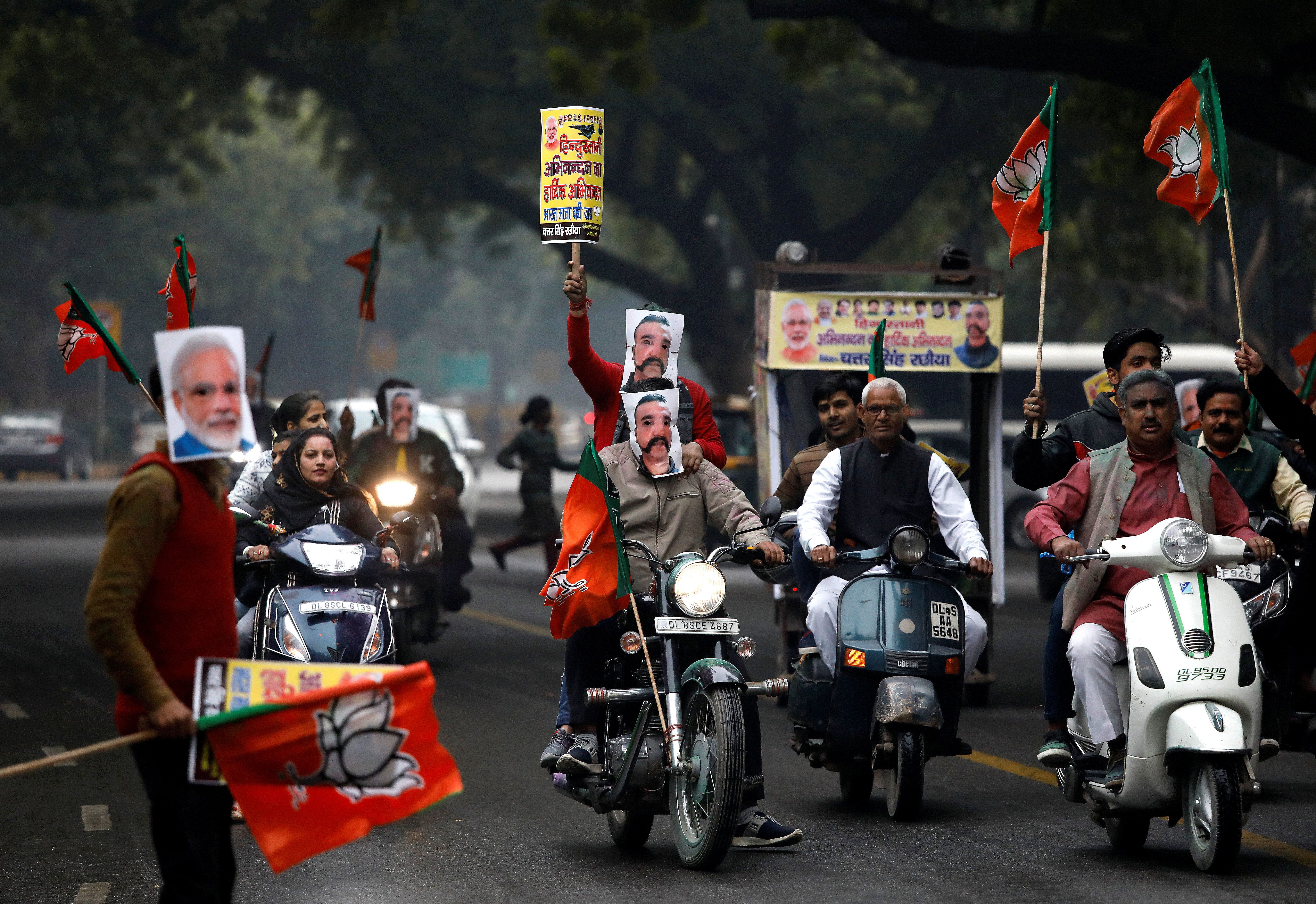April 04, 2019
A new report fromThe Atlanticdetails an epidemic of "fake news" now plaguing India as it gears up for an upcoming national election, with a critical difference from stories of Russian interference in European and US elections: This problem is based at home.
Indian political parties have reportedly created elaborate operations to spread false and malicious stories aimed at political rivals, critics, and even religious minorities.
The damage has been dramatic; carefully crafted rumors that play on existing fears and prejudices have reportedly contributed to the lynching deaths of more than two dozen victims.
The troubling trend: There is nothing uniquely Indian, of course, about organized misinformation campaigns or public appetite for ugly rumors that confirm prejudices. Indonesia President Joko Widodo is now making campaign appearances via hologram in part to refute fake news stories in front of as many people as possible ahead of an upcoming election there later this month. "I assure you it's all slander, lies. Don't believe it," his hologram pleas.
The bottom line: If this trend is taking hold in India and Indonesia, you can be sure it's going to be a problem all over the world. Here are some recent African examples. Prepare for upcoming stories about digital-age dirty tricks in every country that holds elections—and new ideas on how to guard against them.
From Your Site Articles
- India's New Election Battleground: Guaranteed Income - GZERO ... ›
- India election: Will Prime Minister Modi win? - GZERO Media ›
Related Articles Around the Web
More For You
- YouTube
While Gaza and Ukraine dominate headlines, dozens of other conflicts—from Haiti to Myanmar to the Congo—get far less global attention. International Crisis Group’s Comfort Ero joins Ian Bremmer on GZERO World.
Most Popular
US President Donald Trump arrives to announce reciprocal tariffs against US trading partners in the Rose Garden of the White House in Washington, DC, USA, on April 2, 2025.
POOL via CNP/INSTARimages.com
From civil conflicts to trade wars to the rise of new technologies, GZERO runs through the stories that have shaped this year in geopolitics.
Ukrainian serviceman walks near apartment buildings damaged by Russian military strike, amid Russia's attack on Ukraine, in the frontline town of Kostiantynivka in Donetsk region, Ukraine December 20, 2025.
Oleg Petrasiuk/Press Service of the 24th King Danylo Separate Mechanized Brigade of the Ukrainian Armed Forces/Handout via REUTERS
Ukrainian intelligence services assassinated a senior Russian general on the streets of Moscow on Monday, detonating a bomb strapped to his car.
French President Emmanuel Macron arrives at the July 14, 2025 military parade on the Champs-Elysees in Paris. - 14/07/2025 - France / Ile-de-France (region) / Paris
Julien Mattia / Le Pictorium.
1: French President Emmanuel Macron announced plans to build France’s first aircraft carrier in decades, as Europe accelerates rearmament.
© 2025 GZERO Media. All Rights Reserved | A Eurasia Group media company.
